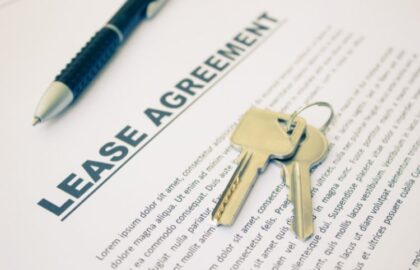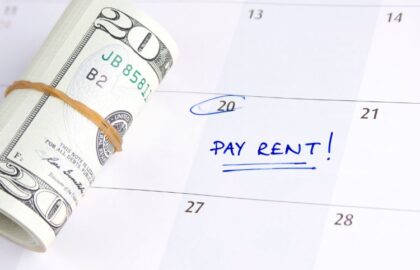
A good property manager can be an invaluable asset to a real estate investor. However, hiring a property manager often involves a lot of enquiries, plenty of time, and more legwork than you bargained for.
If you have specific requirements and know where to look, you can expect a smoother hiring process.
A good place to start is to know how much you can expect to pay, which brings us to the question: what do property managers charge?
What Does a Property Manager Charge?
Property managers typically charge a percentage of the monthly rent as their fee for managing your property.
This percentage can vary significantly, ranging from as low as 4% to as high as 15%, depending on the specific manager and the services they provide. However, it’s most common to see rates falling within the range of 6% to 10%.
Keep in mind that while lower rates might seem enticing, they often come with service exclusions. This means that certain tasks or responsibilities may not be covered under the lower fee, potentially leading to additional costs or headaches down the line.
A Breakdown of Standard Property Management Fees
The average property management fees are mostly included in all packages, and they’re specified in the contract.
Monthly Fee
The monthly fee covers the ongoing management of your property and is typically outlined in detail within the management contract. What’s included in this fee can vary widely depending on the property manager or the property management agency.
It’s important to note that lower monthly rates often come with exclusions, meaning that certain services may not be covered unless you’re willing to pay extra.
So, while opting for a lower monthly fee might seem like a money-saving move upfront, it’s essential to consider the potential additional costs down the line.
Property managers may structure their monthly fees in one of two ways: as a flat fee or as a percentage of the rent collected from rental properties.
The structure to use depends on factors such as the size of the property and the extent of services provided.
Flat fees are typically set amounts specified for each month, while percentage-based fees are calculated based on the rental income.
Maintenance Fee
Maintenance fees are a crucial aspect of property management, covering various tasks aimed at keeping your property in top-notch condition.
While these fees are typically included within the monthly management fee, there are instances where they may be itemised separately.
These fees cover a range of maintenance activities, including but not limited to keeping common areas clean, snow removal, garbage disposal, lawn mowing, leaf removal, and other routine upkeep tasks.
Essentially, it’s all about ensuring that your property maintains its curb appeal and functionality.
Extra or Hidden Property Management Fees
While monthly fees are standard and all property managers charge them, some fees are calculated separately or, in some cases, hidden.
Initial Paperwork
Property managers may charge a one-time fee (letting fee) for handling the initial paperwork or setting up an account for your property.
This fee is typically incurred at the beginning of the management relationship and covers the administrative tasks associated with getting everything set up properly.
Placement Fee
Another potential extra fee to be aware of is the placement fee, which covers the processing and screening process when tenants apply for a property.
This fee is typically charged by property managers to cover the costs associated with finding and placing prospective tenants.
Placement fees can vary widely, ranging from a flat rate as low as $25 to a percentage of the first month’s rent, with some reaching up to 100%.
The exact amount of the fee depends on factors such as the location of the property, the level of service provided by the property manager, and the local rental market conditions.
Eviction Fee
Eviction fees are not always included in standard property management packages. Property managers may charge an additional fee for overseeing the eviction process on your behalf.
This fee typically covers tasks such as filing eviction notices, coordinating with legal counsel, and possibly attending court proceedings.
Some property managers may offer comprehensive eviction packages that include all aspects of the process, while others may only cover basic filing fees.
For more reading on evictions, find out whether a strata can evict a tenant.
Vacancy Fee
The vacancy fee is designed to compensate the property manager for every month that your property remains unoccupied.
It acts as a penalty for property owners who have empty homes, incentivising them to minimise vacancies and keep their properties occupied.
The fee provides a form of compensation to the property manager for their ongoing efforts to find suitable tenants for the investment property and fill vacancies promptly.
Early Termination Fee
Another potential fee to be aware of is the early termination fee. This fee is incurred when a property owner decides to terminate the property management contract before its agreed-upon expiration date.
The early termination fee can vary depending on the terms outlined in the contract between the property owner and the manager. Typically, this fee is specified within the contract and may be set as an additional month of management fees or another predetermined amount.
How Property Management Fees Are Determined
Property management fees are determined based on a variety of factors, primarily revolving around the services and responsibilities that the property manager will undertake on behalf of the property owner.
Services and Responsibilities
The specific services provided by a property manager play a significant role in determining the associated fees.
These services can vary widely depending on the needs and preferences of the property owner, as well as the scope of management required for the property.
For more context on managers, read ahead for what a real estate property manager is.
Typical services provided by property managers include:
- Rent Collection: This involves collecting rent payments from tenants on behalf of the property owner.
- Maintenance and Repairs: Property managers may be responsible for coordinating and overseeing repairs and maintenance tasks to ensure that the property remains in good condition.
- Additional Services: Depending on the property manager and the specific agreement, additional services such as property renovations or marketing efforts may also be included.
Property Size
The size of your property plays a pivotal role in shaping the management fees. It’s a simple equation: larger properties often necessitate more work.
More units mean more tenants to manage, more maintenance tasks to oversee, and potentially more administrative duties. Therefore, property managers may adjust their fees based on the scale of your property.
Property Type
Beyond size, the type of property you own also impacts the management fees. Whether it’s a single-family home, a commercial property, or a vacant lot, each type presents its own set of challenges and responsibilities for the property manager.
For instance, commercial properties often involve more complex leasing agreements and maintenance requirements compared to residential properties.
Similarly, vacant properties may require specialised marketing efforts to attract potential tenants or buyers. As a result, property managers may adjust their fees to align with the unique demands of each property type.
Property Location
Properties in high-demand areas with desirable amenities and strong rental markets often command higher rents, which, in turn, may lead to higher property management fees.
These properties may also require more proactive management strategies to address tenant turnover and market fluctuations, further justifying the higher fees charged by property managers.
Final Thoughts
Property management fees are determined by various factors, including property size, type, condition, and location.
While these fees may vary based on individual circumstances, understanding the rationale behind their determination is crucial for property owners seeking effective management services.
By partnering with a property manager who offers transparent fee structures and tailored services, you can maximise the value of your investments and ensure the long-term success of your properties.








